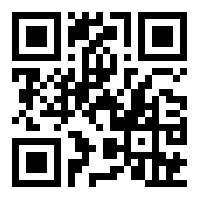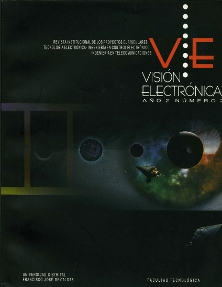DOI:
https://doi.org/10.14483/22484728.18386Publicado:
2018-08-13Número:
Vol. 1 Núm. 2 (2018): Edición especialSección:
Visión de CasoAnalysis of the spatio-temporal gait parameters of transtibial amputees
Análisis de parámetros espacio temporales de la marcha de amputados transtibiales
Palabras clave:
Amputación, Marcha, Software, Variable espacio temporal (es).Palabras clave:
Amputation, Gait, Software, Variable temporal space (en).Descargas
Resumen (en)
In this study we analyzed the spatio-temporal parameters (step length, step time, stride length, stride time, speed and rate) of three unilateral transtibial amputees in order to find the best gait pattern and this verify the adaptation of the prosthesis, using inertial sensors of the TECHNAID ® brand in order to make the diagnosis in an objective way; the data were processed using the MARCHA ET software of the DIGITI research group of the Universidad Distrital Francisco José de Caldas. In this study, were analyzed three subjects from the Hospital Militar Central (HMC) the cause of amputation is due to trauma caused by antipersonnel mines. It was found that subjects with unilateral transtibial amputation lean on more time and carry more weight on their healthy lower limb, which leads to an increase in mechanical demand on the knee joint of the amputated leg.
Resumen (es)
En este estudio se analizaron los parámetros espaciotemporales (longitud del paso, tiempo del paso, longitud de la zancada, tiempo de zancada, velocidad y cadencia) de tres amputados transtibiales unilaterales con el objetivo de buscar el mejor patrón de marcha y así verificar la adaptación de la prótesis, utilizando sensores inerciales de la marca TECHNAID ® con el fin de hacer el diagnostico de manera objetiva; los datos fueron procesados utilizando el software MARCHA ET del grupo de investigación DIGITI de la Universidad Distrital. En este estudio se analizaron tres sujetos del Hospital Militar Central (HMC) cuya causa de amputación es por trauma por mina antipersonales. Se encontró que los sujetos con amputación transtibial unilateral apoyan más tiempo y cargan más sobre su extremidad inferior sana, lo que conlleva al aumento de demanda mecánica sobre la articulación de la rodilla de la pierna amputada.
Referencias
L. Luengas, E. Camargo and G. Sanchez, “Modelling and simulation of normal and hemiparetic gait”, Frontiers of Mechanical Engineering, vol. 10, no. 3, 2015, pp. 233–241. http://doi.org/10.1007/s11465-015-0343-0
F. Molina- Rueda, “Estrategias de control motor en sujetos protetizados con amputación transtibial unilateral: unilateral análisis instrumental”, thesis PhD., Universidad Rey Juan Carlos, Madrid, España, 2017.
M. Lenhart, P. Pasquina and R. Cooper, “Care of the combat amputee”, Washington DC, USA: Department of the Army, 2010.
M. Leblanc, “Give Hope - Give a Hand”, 2011. [Online]. Available at: https://events.stanford.edu/events/263/26395/
I. Tolosa-Guzmán, J. A. Castillo-Martínez, “Introducción al análisis de la marcha”, Bogotá: Editorial Universidad del Rosario, 2013.
J. Camara, “Análisis de la marcha: fases y variables espacio-temporales”, Entramado, vol. 7, no. 1, 2011, pp. 160-173.
J. Perry and J. Burnfield, “Gait analysis: normal and pathological function”, J. Sports Sci. Med., vol. 9, no. 2, 1992.
Technaid, “Conexión recomendada de una red de 16 IMUs para el cuerpo humano”, 2016. [Online]. Available at: http://www.technaid.com/wp-content/uploads/2016/05/Conexio%CC%81n-recomendada-de-una-red-de-16-IMUs-para-el-cuerpo-Humano-ES.pdf
C. Van Uden and M. Besser, “Test-retest reliability of temporal and spatial gait characteristics measured with an instrument walkway system (GAITRite)”, BMC Musculoskeletal Disorders, vol. 5, no. 13, 2004, pp. 134-141. https://doi.org/10.1186/1471-2474-5-13
Cómo citar
APA
ACM
ACS
ABNT
Chicago
Harvard
IEEE
MLA
Turabian
Vancouver
Descargar cita
Licencia
Derechos de autor 2018 Visión electrónica

Esta obra está bajo una licencia internacional Creative Commons Atribución-NoComercial 4.0.
.png)
atribución- no comercial 4.0 International






.jpg)





